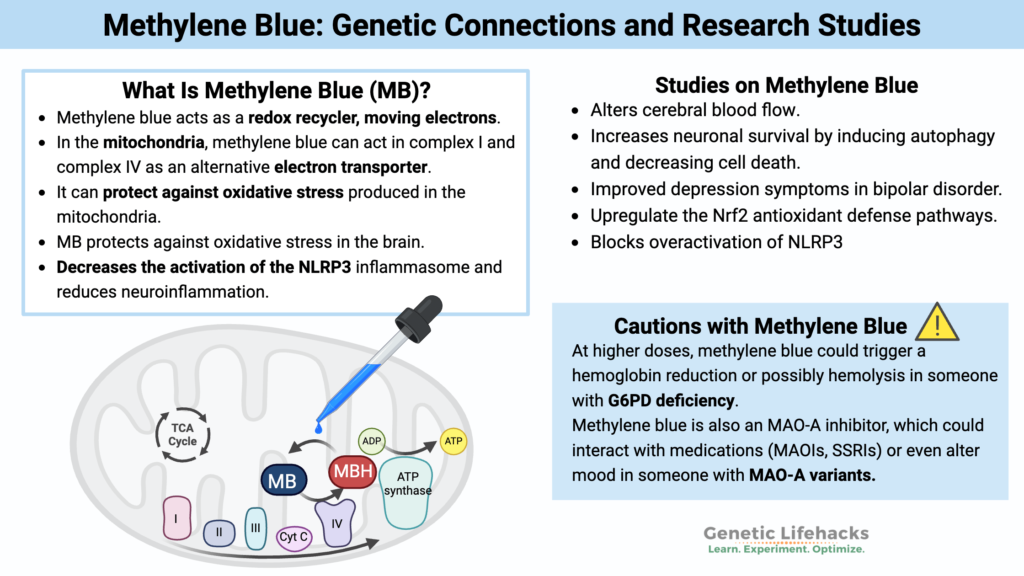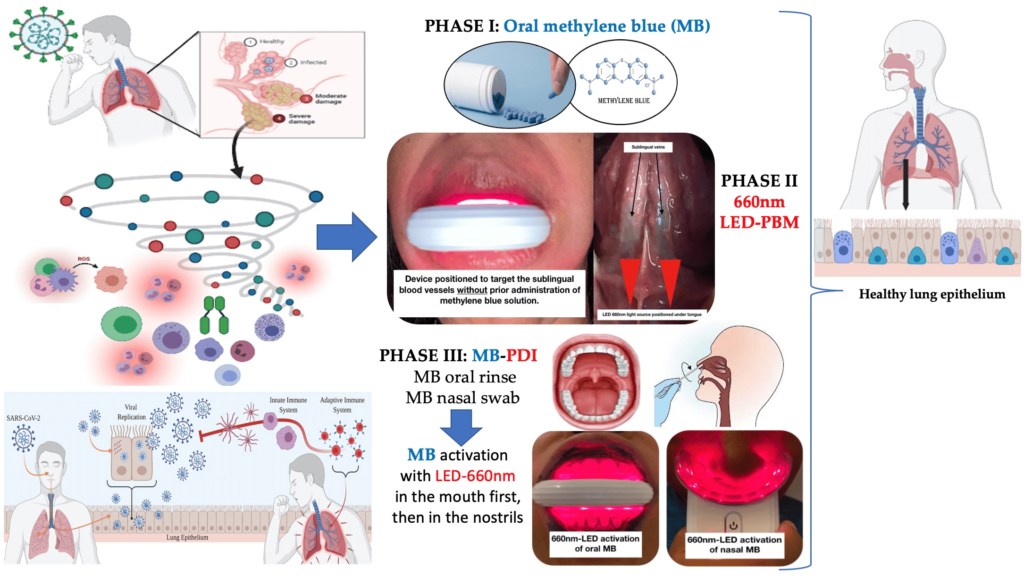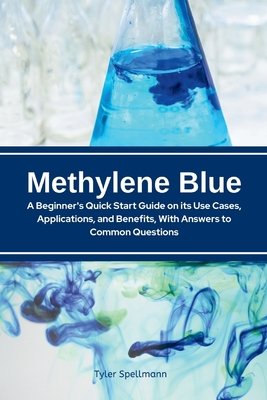
What have you heard about methylene blue lately? If you’re part of online communities discussing this compound, you might have seen a flurry of questions cropping up. Whether you’re curious about its uses, benefits, or safety, it can feel overwhelming to sift through all the information and opinions out there. Don’t worry, I’m here to break it down.
What is Methylene Blue?
Methylene blue isn’t just a fancy name. It’s a compound that has found its way into various fields, from medicine to science. While it’s been around for over a century, its uses are evolving. It’s often recognized for its vibrant blue hue, but there’s so much more to it.
Historical Background
Methylene blue was first synthesized in the late 19th century and initially used as a dye. Over time, it gained traction in the medical field, particularly for treating a condition called methemoglobinemia, where the blood can’t carry oxygen efficiently. Understanding its historical context helps underscore why discussions about its modern applications generate so much interest.
Current Uses in Medicine
You might be surprised to learn that methylene blue has gained notoriety in alternative medicine circles. Not only is it used in some traditional treatments, but people are also exploring its potential role in revitalizing mental and cognitive functions. If you’re asking, “How does this work?” you’re not alone!
Questions About Methylene Blue’s Benefits
One of the primary reasons this compound garners so much attention is its perceived benefits. Let’s look into some of the most frequently asked questions surrounding its advantages and uses.
Can Methylene Blue Improve Cognitive Function?
This question pops up regularly across forums. Some users swear by methylene blue as a cognitive enhancer, claiming it helps with memory and focus. While anecdotal evidence can be compelling, it’s essential to ask: what does the research say?
Research Insights
Studies have indicated that methylene blue may impact mitochondrial function, which is crucial for energy production in brain cells. Enhanced mitochondrial efficiency might correlate with improved cognitive performance. However, individual experiences can vary widely. So, while some users report benefits, you shouldn’t expect a miracle drug.
Is Methylene Blue Safe for Consumption?
Safety is a paramount concern whenever a new supplement or treatment enters public consciousness. Methylene blue is generally considered safe at low doses, but it’s wise to tread carefully.
Potential Side Effects
While many people have no adverse effects when taking methylene blue, others may experience headaches, nausea, or gastrointestinal distress. Some individuals might have an allergic reaction, which requires immediate attention. Always consider discussing any new supplement with a healthcare provider before diving in.

This image is property of www.geneticlifehacks.com.
Questions About Methylene Blue and Mental Health
As mental health becomes a more widely discussed topic, new treatments and substances often come to the forefront. Methylene blue has found its way into conversations about depression and anxiety, but what should you know before considering it?
Can Methylene Blue Help with Depression?
If you’re searching for ways to combat depression, it’s possible you’ve stumbled upon claims regarding methylene blue’s antidepressant effects. Some early studies suggest that it may have a mood-enhancing effect for certain individuals. The question is: how reliable is this?
Examining the Evidence
Research has indicated that methylene blue might enhance serotonin levels, which can help boost mood. However, as with cognitive function, the results are still inconclusive, and more extensive studies are required to draw firm conclusions.
What about Anxiety Relief?
Amid the multitude of anxiety remedies discussed online, methylene blue occasionally comes up. Some users argue that this compound may contribute to reducing anxiety levels.
Preliminary Research Analysis
Some research suggests that methylene blue may influence anxiety by modulating neurotransmitter levels. However, the evidence isn’t robust enough to suggest it’s a go-to solution for everyone struggling with anxiety.
Questions About Methylene Blue’s Mechanism of Action
Understanding how methylene blue works is crucial to discerning its potential benefits. Users often pose questions about the compound’s mechanism of action, and rightfully so. Let’s explore that.
How Does Methylene Blue Work in the Body?
At the cellular level, methylene blue serves as a redox agent, meaning it can help facilitate electron transfer—vital for energy production. This capability provides the basis for its effectiveness in several applications, particularly in the brain.
Role of Mitochondria
Mitochondria, often referred to as the “powerhouses” of cells, get a boost from methylene blue. If you’re familiar with energy production in cells, you’ll appreciate that methylene blue may enhance mitochondrial function, leading to better overall energy levels in tissues and organs.

This image is property of pub.mdpi-res.com.
Questions About Dosage and Administration
Getting the dosage right can be crucial when considering any supplement. You might wonder what the recommended amounts for methylene blue are and how to incorporate it into your routine.
What Dosage of Methylene Blue is Recommended?
There’s often confusion in online discussions about the ideal dosage of methylene blue. Recommendations can vary, but moderate doses are usually around 0.5 to 4 mg per kilogram of body weight. However, it’s essential to remember that everyone’s body reacts differently.
What’s the Best Way to Take Methylene Blue?
There are multiple ways to take methylene blue—whether it’s in liquid form, capsules, or tablets. Each method can have different absorption rates. If you’re considering trying it, you may want to experiment with various forms while keeping an eye on how your body responds.
Questions About Methylene Blue and Its Risks
Every compound comes with its risks, and with increased use of methylene blue, it’s wise to pull back the curtain on potential hazards.
Are There Any Long-Term Risks?
When using methylene blue over extended periods, many people worry about long-term risks. Current research hasn’t flagged dire consequences for short-term use but does raise questions about long-term safety.
Considerations
While methylene blue can be safe in low doses, regular long-term use needs robust scientific backing, which is lacking at present. Think carefully and consult with healthcare professionals if you’re considering a long-term regimen.
Can Methylene Blue Interact with Other Medications?
Drug interactions can pose serious risks, and methylene blue is no exception. If you’re on other medications, especially those affecting serotonin levels, it’s crucial to ask: could there be interactions?
Known Interactions
Methylene blue can interact negatively with certain medications, including SSRIs, MAO inhibitors, and some antidepressants. This is one of the most significant reasons why consulting a healthcare professional before starting methylene blue is a must.

This image is property of images.booksense.com.
Questions About the Legality of Methylene Blue
In your quest for understanding methylene blue, you may have come across discussions about its legality. Because perceptions vary significantly, let’s clarify.
Is Methylene Blue Legal?
In Europe and many countries, methylene blue is often available for purchase over the counter. In the U.S., it can be procured as a supplement or dye, but it’s essential to keep an eye on varying regulations.
Buying Methylene Blue
Before making any purchases, be sure to check your local regulations regarding methylene blue. Additionally, shop from reputable sources to ensure you’re getting a quality product.
Questions About Methylene Blue’s Popularity
The surge in interest around methylene blue begs another set of questions—why now? Why have so many online communities gravitated towards it?
What’s Driving the Interest in Methylene Blue?
As wellness trends continue to evolve, so too do the substances that capture public interest. Natural supplements and cognitive enhancers often see exponential growth in popularity.
Social Media and Influencer Culture
The rise of social media platforms has played a significant role in the propagation of discussions around methylene blue. Influencers and enthusiasts frequently share their experiences, which can create a cascading effect, enticing more people to explore its benefits.

This image is property of media.springernature.com.
Conclusion
The conversation surrounding methylene blue is intricate and multifaceted, blending science, anecdote, caution, and curiosity. You might feel a sense of intrigue around its potential benefits and risks, and that’s perfectly reasonable. Remember, while discussions in online communities can be helpful, they’re no substitute for personalized medical advice. You are encouraged to do your research, ask questions, and most importantly, consult healthcare professionals before making any health decisions. Whether you’re curious about cognitive enhancement or exploring solutions for mental health, knowing the facts about methylene blue can guide you on your journey. So, what’s your next move?